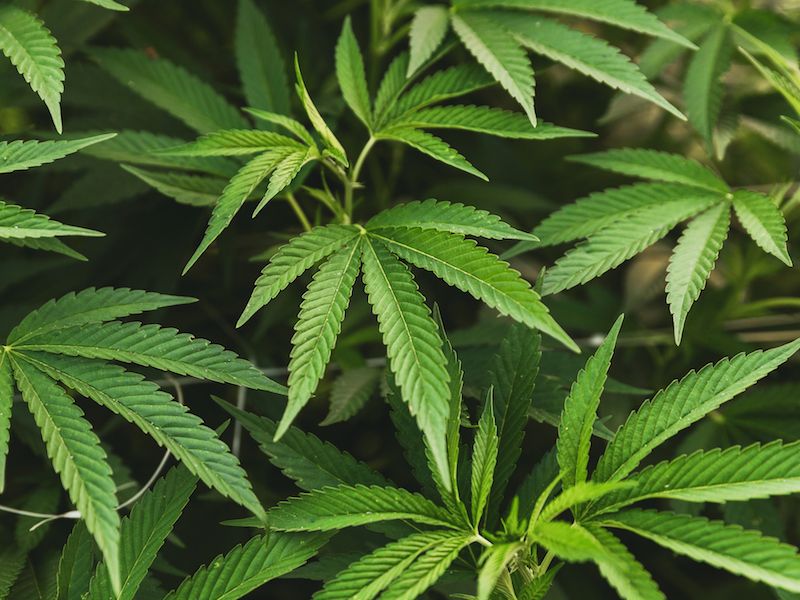
Public opinion about cannabinoids and marijuana have transformed remarkably over the last few decades. THC, cannabinoids, and even marijuana are legal for medical usage in most states. Far fewer states have legalized marijuana for recreational applications, but even that would have been unthinkable even just ten or fifteen years ago.
A group of substances originating from the cannabis plant (the marijuana plant, basically) are referred to as cannabinoids. New things are being uncovered about cannabinoids all the time in spite of their recent legalization in some states. We usually consider these particular compounds as possessing universal healing properties, but established research implies there might also be negative effects such as a strong connection between cannabinoid use and the development of tinnitus symptoms.
Cannabinoids Come in Numerous Types
There are lots of varieties of cannabinoids that can be consumed now. It isn’t just weed (or ganja, or refer…..ok, there are plenty of nicknames for marijuana so let’s move ahead). These days, THC and cannabinoids can be obtained in pill form, as topical spreads, as inhaled vapor, and lots of others.
Every state has it’s own laws regarding which forms of cannabinoids you can get, and many of those forms are still officially illegal under federal law if the amount of THC is more than 0.3%. So it’s still common for people to be very cautious about cannabinoids.
We still require more study and experience before we will really know the long range and side effects of cannabinoids. Some new research into how cannabinoids impact your hearing is a good example.
Cannabinoids And Your Hearing, Some New Research
A large number of ailments and medical conditions are thought to be helped by cannabinoids, whatever you want to call it. Based upon information that is anecdotally available, conditions such as Nausea, seizures, vertigo, and countless more appear to be improved by cannabinoids. So is it possible that cannabinoids help with tinnitus? That’s just what scientists decided to find out.
Tinnitus could actually be caused by cannabinoid use, as it turns out. Based on the research, over 20% of study participants who employed cannabinoid products documented hearing a ringing in their ears. And that’s in individuals who had never experienced tinnitus before. Additionally, marijuana users were 20-times more likely to report experiencing tinnitus symptoms after 24 hours.
And for people who already have tinnitus, marijuana use made it worse. In a nutshell, there’s some very compelling evidence that cannabinoids and tinnitus don’t really mix all that well.
How Cannabinoids Make Tinnitus Worse
Your tinnitus can be worsened by cannabinoids in a couple of tangible ways. The first is that your tinnitus can become more frequent. Cannabinoids can also make those tinnitus episodes more intense. The discomfort from the ringing may become louder or harder to just ignore.
Cannabinoids have also been found to cause the onset of tinnitus symptoms. To put it another way: if you didn’t have tinnitus before, you may develop tinnitus after using cannabinoids.
The Causes of Tinnitus Are Unclear
Just because this link has been discovered doesn’t inevitably mean the underlying causes are very well known. It’s apparent that cannabinoids can have an impact on the middle ear and symptoms of tinnitus. But what’s causing that impact is far less obvious.
But we know that marijuana use, in contrast to other mood altering substances like alcohol, can cause tinnitus.
Research, unquestionably, will continue. Cannabinoids nowadays come in so many options and forms that understanding the underlying link between these substances and tinnitus would help individuals make better choices.
The Miracle Cure Beware
There has certainly been no shortage of marketing hype associated with cannabinoids in recent years. Partly, that’s because of changing perceptions surrounding cannabinoids themselves (and, to an extent, is also a reflection of a desire to turn away from opioids). But cannabinoids can and at times do produce unwanted results, based on this new research, and this is particularly true regarding hearing.
The marketing for cannabinoids has been extremely aggressive and you can’t completely escape all of the enthusiasts.
But tinnitus and cannabinoids are clearly connected based on this research. So regardless of how many adds you see for CBD oils, if you’re worried about tinnitus, you should probably avoid them. The connection between cannabinoids and tinnitus symptoms has been quite firmly demonstrated by the research, so it’s worth being careful.